Rabbinic Literature
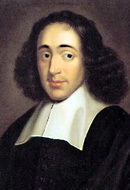 Secularism and Its Discontents
Secularism and Its DiscontentsFriday, December 17, 2010 by Yehudah Mirsky | Jewish Ideas Daily » Daily Features
The transformations of Jewish life in the last two-and-a-half centuries still boggle the mind. Deep ruptures opened to separate the present from the past, modernity from tradition, setting terms that have defined the contours of Jewish life until today. How did people try to think their way through the change?
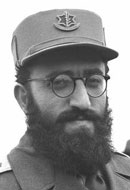 The Warrior Rabbi
The Warrior RabbiFriday, November 5, 2010 by Aryeh Tepper | Jewish Ideas Daily » Daily Features
Praise of military virtue, prominent in the Bible, is almost non-existent in the Talmud, which, in the aftermath of the destruction of the Temple and the exile of the Jews by the Romans, either ignores wartime feats or re-interprets them as allegories of intellectual or spiritual prowess. The Talmud's relative silence on the subject would prove enduring. Until the second half of the 20th century, with few exceptions, military virtue was consistently depreciated in traditional Jewish thought.
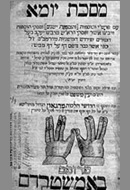 The Persian Talmud
The Persian TalmudTuesday, November 2, 2010 by Yehudah Mirsky | Jewish Ideas Daily » Daily Features
A recent gathering of scholars who have been intensely researching the buried treasures of "Irano-Judaica," together with the release of a volume titled The Talmud in its Iranian Context, underscores one of the most exciting developments in Jewish studies: the effort to put the "Babylonia" back into the Babylonian Talmud.
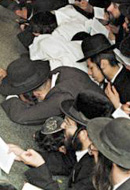 The Mad Mystic of Bratslav
The Mad Mystic of BratslavMonday, November 1, 2010 by Allan Nadler | Jewish Ideas Daily » Daily Features
Rabbi Nahman of Bratslav (1772-1811) is the strangest and most paradoxical leader in the history of Hasidism, and one of its most original, albeit mad, geniuses. Nahman has been an object of both literary fascination and considerable scholarly research. He also shares center stage with Franz Kafka (1888-1924) in Rodger Kamenetz's Burnt Books.
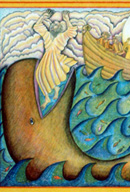 Jonah and Yom Kippur
Jonah and Yom KippurWednesday, September 15, 2010 by Meir Soloveichik | Jewish Ideas Daily » Daily Features
Read in its entirety in the synagogue in the afternoon of Yom Kippur, Jonah is the only multi-chapter book of the Bible to be so honored. Indeed, one commentator, observing that the brief Torah reading that precedes Jonah has little to do with the day, but merely continues where the morning reading left off, has suggested that this may be precisely in order to emphasize that, in a departure from the usual priorities, the haftarah, or prophetic portion, is in fact the critical text for the occasion. But what makes it so significant, and what lesson does it really teach about Yom Kippur?
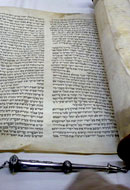 Orthodoxy and Innovation
Orthodoxy and InnovationMonday, September 13, 2010 by Aryeh Tepper | Jewish Ideas Daily » Daily Features
For many religiously observant Jews, the traditional siddur, or prayer book, constitutes a problem. One such Jew was the great hasidic rebbe, Nahman of Bratzlav (1772-1810), who articulated the problem in terms appropriate to his time: the fixed prayers, with their praises and petitions, are like a well-traveled highway, and well-traveled highways attract robbers. By which he meant that excessive routine makes it difficult to concentrate the mind.
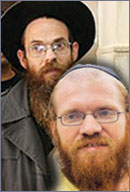 A Grim Teaching
A Grim TeachingFriday, August 27, 2010 by Yehudah Mirsky | Jewish Ideas Daily » Daily Features
Every first-year law student knows that hard cases make bad law. In Israel, a particularly hard case lies in the ongoing controversy around an inflammatory Hebrew-language volume of Jewish religious law (halakhah) that offers justifications for violent treatment of non-Jews in general and of Israel's foes in particular. The debate has highlighted longstanding divisions within Israeli society; now that the courts and the police have gotten into the act, it has also highlighted the difficulties of drawing meaningful lines between free speech and incitement.
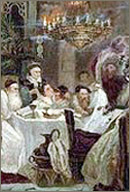 Out of the Well of the Past
Out of the Well of the PastMonday, August 2, 2010 by Yehudah Mirsky | Jewish Ideas Daily » Daily Features
Jewish history was once regularly portrayed as a march from pre-modern stasis to modern revolution and change. This picture held its attractions, offering clearly marked battle lines for later proponents on either side of the ongoing ideological struggles between traditionalists and modernizers. By now, however, we have been well instructed in the deceptive simplicity of all such efforts to impress order on the relentless flux of history, which so often dissolves the closer we look at it.
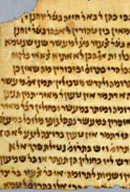 The Other Talmud
The Other TalmudFriday, July 16, 2010 by Yehudah Mirsky | Jewish Ideas Daily » Daily Features
A Jewish classic known as much for its obscurity as for its great significance took another step into the light this spring with the online publication of its oldest and most reliable version. The classic is the Jerusalem Talmud, and the version is a parchment manuscript, known as the Leiden manuscript, written in 1289 by a Jewish scholar and copyist in Rome.
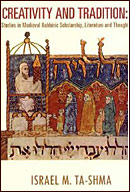 What Israel Ta-Shma Saw
What Israel Ta-Shma SawMonday, June 14, 2010 by Yehudah Mirsky | Jewish Ideas Daily » Daily Features
Among the 7,000 new titles featured in Israel's annual book festival last week was the fourth, final, and—sadly—posthumous volume of studies by Israel Ta-Shma (1936–2004), one of the great rabbinic scholars of modern times.
Editors' Picks
Disjecta Membra Benjamin Balint, Los Angeles Review of Books. Not for nothing was the Cairo Genizah called "the Living Sea Scrolls": its discoverers revolutionized the study of Mediterranean Jewish life at the very moment that it was drawing to a close.
The Wages of Criticism Zev Eleff, Jewish Review of Books. The 18th-century scholar Aryeh Leib Ginsburg was a harsh critic of earlier halakhic authorities. Did they finally exact revenge on him? And, if so, who's been covering up the story?
Cancelling Conversion Gil Student, Torah Musings. While many Orthodox rabbis have become too willing to annul conversions, even the non-Orthodox world recognizes that there are some circumstances in which a conversion must be overturned.
Blurring the Issue Hadassah Levy, Torah Musings. Blurring or removing photographs of women might be understandable in the ultra-Orthodox world, but it should have no place in Modern Orthodoxy.
Reb Shlomo, Superstar Mary Jane Fine, Forward. If Fiddler on the Roof is about tradition, a new musical about Shlomo Carlebach is about breaking with tradition—even if that means, as in Carlebach's case, breaking one's father's heart.
The Original Kosher Jesus Fred MacDowell, On the Main Line. 150 years ago, Rabbi Elias Soloweyczk published commentaries on Matthew and Mark, aimed not at rejecting the Gospels but showing their concordance with the Talmud.
Sha-bot Gil Student, Torah Musings. Can a robot be a Shabbos goy? The question is not simple, but it is not without Talmudic precedent.
Three Talmudists Confront the Evil Urge Shai Secunda, Amit Gevaryahu, Eva Kiesele, Raphael Magarik, Talmud Blog. A symposium on the psychological, historical, and rabbinic development of the yetzer hara picks up where Jewish Ideas Daily left off.
Indices, Plural Michtavim. The New York Times' recent report on a new index to the Talmud neglected to point out that this work stands in the shadow of a 16th-century index—one that, perhaps, changed the course of Jewish history.
The Afghanistan Genizah Gil Shefler, Jerusalem Post. The scholarly world is abuzz over a cave filled with ancient scrolls that may be the most significant historical discovery in the Jewish world since that of the Cairo Genizah. (Hebrew report with video here.)

